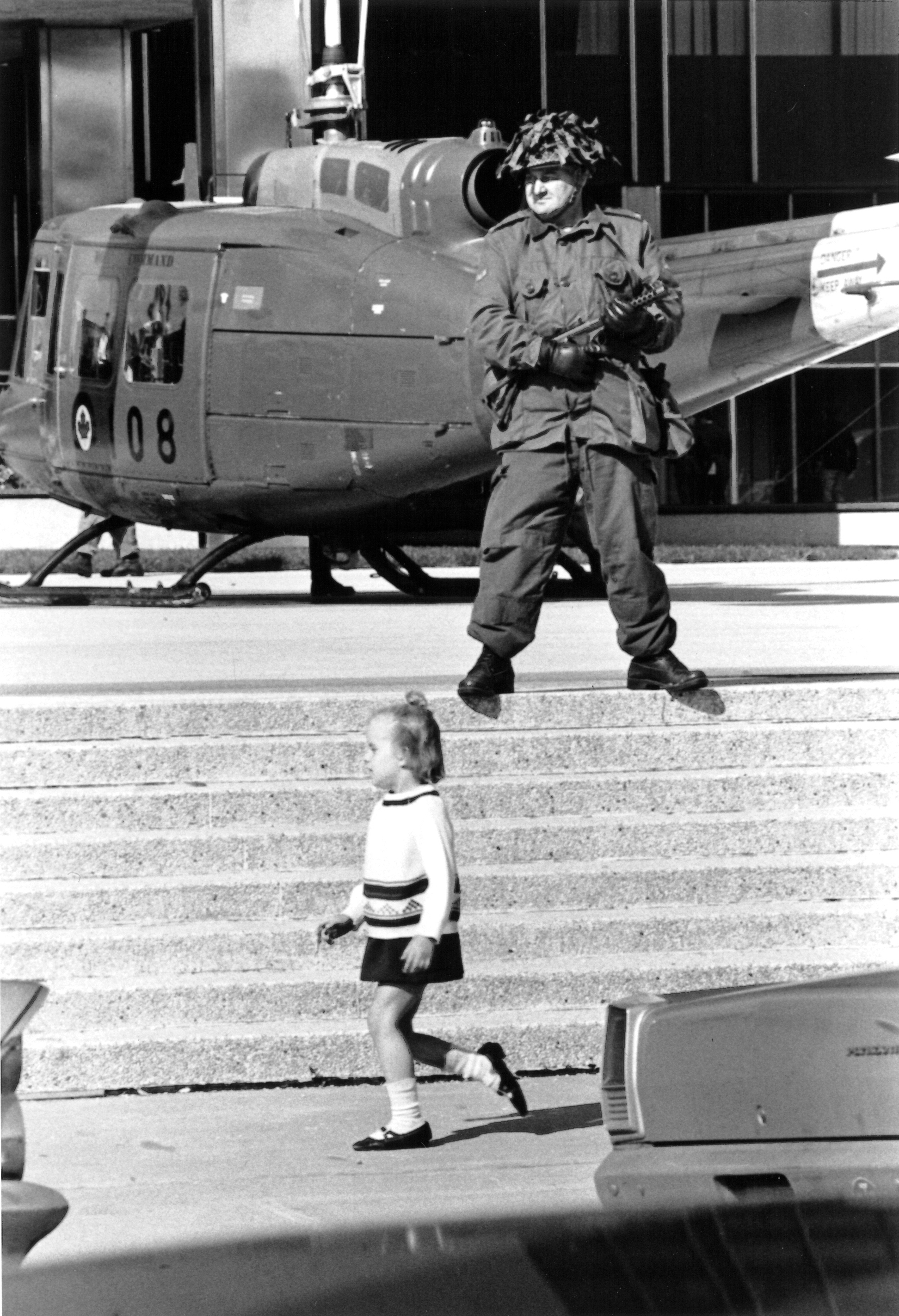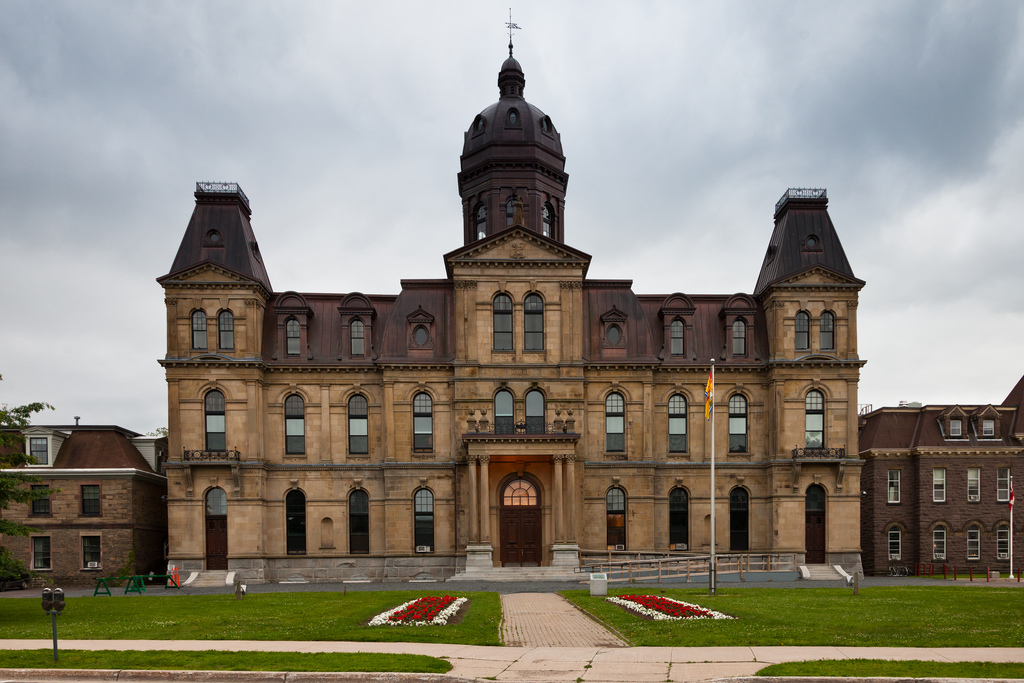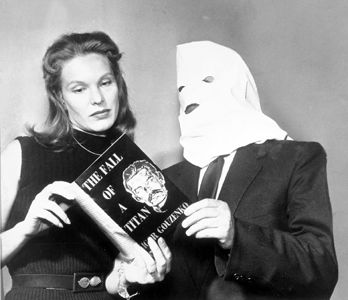Article
Nunavut and Confederation
Nunavut — meaning "our land" in the Inuit language Inuktitut — entered Confederation in 1999 as Canada's third territory and newest member of the country.

Enter your search term
Signing up enhances your TCE experience with the ability to save items to your personal reading list, and access the interactive map.
Create AccountArticle
Nunavut — meaning "our land" in the Inuit language Inuktitut — entered Confederation in 1999 as Canada's third territory and newest member of the country.
"https://d3d0lqu00lnqvz.cloudfront.net/media/media/c3b5ada1-b017-4ea1-ae8a-9d781a968d59.jpg" // resources/views/front/categories/view.blade.phphttps://d3d0lqu00lnqvz.cloudfront.net/media/media/c3b5ada1-b017-4ea1-ae8a-9d781a968d59.jpg

Macleans
Under a hazy sky, Helen Beath clutched a placard on the picket line outside Montreal General Hospital. Even though she retired in May after 43 years of nursing, Beath returned to the hospital last week to support her former colleagues.This article was originally published in Maclean's Magazine on July 12, 1999
"https://www.thecanadianencyclopedia.ca/images/tce_placeholder.jpg?v=e9dca980c9bdb3aa11e832e7ea94f5d9" // resources/views/front/categories/view.blade.phphttps://www.thecanadianencyclopedia.ca/images/tce_placeholder.jpg?v=e9dca980c9bdb3aa11e832e7ea94f5d9

Macleans
For 15 agonizing weeks, the three women sat in the Yellowknife courtroom in a row directly behind Crown prosecutor Peter Martin.This article was originally published in Maclean's Magazine on January 30, 1995
"https://www.thecanadianencyclopedia.ca/images/tce_placeholder.jpg?v=e9dca980c9bdb3aa11e832e7ea94f5d9" // resources/views/front/categories/view.blade.phphttps://www.thecanadianencyclopedia.ca/images/tce_placeholder.jpg?v=e9dca980c9bdb3aa11e832e7ea94f5d9

Article
In R v. Oakes (1986), David E. Oakes was accused of possession of drugs for the purpose of trafficking. The Supreme Court of Canada concluded that section 8 of the Narcotic Control Act runs counter to the presumption of innocence enshrined in section 11(d) of the Canadian Charter of Rights and Freedoms. Section 8 states that if a person is found in possession of a drug, he is presumed to have intended to traffic in it. This constitutes a limitation of rights and freedoms that cannot be justified in a free and democratic society, according to section 1 of the Charter. This judgement is the most important to date by the Supreme Court concerning section 1 of the Charter.
"https://d3d0lqu00lnqvz.cloudfront.net/media/media/c813762a-d4db-4a05-b769-18eb4e9b7957.jpg" // resources/views/front/categories/view.blade.phphttps://d3d0lqu00lnqvz.cloudfront.net/media/media/c813762a-d4db-4a05-b769-18eb4e9b7957.jpg

Article
Obscenity became an offence in 1663 when Sir Charles Sidley was convicted for his behaviour after a drinking orgy. He appeared naked on a balcony and threw bottles filled with his own urine down among the people in Covent Garden.
"https://www.thecanadianencyclopedia.ca/images/tce_placeholder.jpg?v=e9dca980c9bdb3aa11e832e7ea94f5d9" // resources/views/front/categories/view.blade.phphttps://www.thecanadianencyclopedia.ca/images/tce_placeholder.jpg?v=e9dca980c9bdb3aa11e832e7ea94f5d9

Article
The October Crisis refers to a chain of events that took place in Quebec in the fall of 1970. The crisis was the culmination of a long series of terrorist attacks perpetrated by the Front de libération du Québec (FLQ), a militant Quebec independence movement, between 1963 and 1970. On 5 October 1970, the FLQ kidnapped British trade commissioner James Cross in Montreal. Within the next two weeks, FLQ members also kidnapped and killed Quebec Minister of Immigration and Minister of Labour Pierre Laporte. Quebec premier Robert Bourassa and Montreal mayor Jean Drapeau called for federal help to deal with the crisis. In response, Prime Minister Pierre Trudeau deployed the Armed Forces and invoked the War Measures Act — the only time it has been applied during peacetime in Canadian history.
"https://d3d0lqu00lnqvz.cloudfront.net/media/media/c8a1d56b-60f5-40b0-86e2-3ce31bc3e7b0.jpg" // resources/views/front/categories/view.blade.phphttps://d3d0lqu00lnqvz.cloudfront.net/media/media/c8a1d56b-60f5-40b0-86e2-3ce31bc3e7b0.jpg

Article
The October Crisis happened in the fall of 1970. It was sparked by the Front de liberation du Québec (FLQ). The FLQ used terrorist tactics to try and make Quebec independent from Canada. On 5 October, the FLQ kidnapped James Cross, a British trade commissioner. The FLQ also kidnapped Quebec cabinet minister Pierre Laporte. Prime Minister Pierre Trudeau invoked the War Measures Act. The Act had never been used before during peacetime. It suspended civil liberties and led to hundreds of arrests. Laporte was murdered and found on 17 October. Cross was freed on 3 December. The crisis ended on 28 December, when Laporte’s killers were captured. (This article is a plain-language summary of the October Crisis. If you are interested in reading about this topic in more depth, please see the full-length entry.)
"https://d3d0lqu00lnqvz.cloudfront.net/media/new_article_images/PA-129838-curious-children.jpg" // resources/views/front/categories/view.blade.phphttps://d3d0lqu00lnqvz.cloudfront.net/media/new_article_images/PA-129838-curious-children.jpg

Article
Created in 1961, the Office québécois de la langue française is a Québec public institution responsible for linguistic officialization, terminological recommendations and the francization of the language of work in both the public and the private sectors. Since 1977, it has been responsible for ensuring that the Charte de la langue française is complied with in Québec, and for monitoring the province’s language situation.
"https://d3d0lqu00lnqvz.cloudfront.net/media/media/f1415842-0d04-4cea-b4a4-e8f7820fc5a9.jpg" // resources/views/front/categories/view.blade.phphttps://d3d0lqu00lnqvz.cloudfront.net/media/media/f1415842-0d04-4cea-b4a4-e8f7820fc5a9.jpg

Article
The Chief Electoral Officer oversees Elections Canada, the non-partisan agency that administers Canada’s federal elections and referendums.
"https://d3d0lqu00lnqvz.cloudfront.net/media/media/3fcad776-7e8d-47da-86aa-c77b5a9d2744.jpg" // resources/views/front/categories/view.blade.phphttps://d3d0lqu00lnqvz.cloudfront.net/media/media/3fcad776-7e8d-47da-86aa-c77b5a9d2744.jpg

Article
New Brunswick, the province with the highest level of linguistic duality in Canada, adopted the Official Languages of New Brunswick Act (OLNBA) in 1969, a few months before the federal government enacted its own Official Languages Act. New Brunswick’s recognition of two linguistic communities (1981), mechanisms for enforcement of the law and redress for infractions (2002), and regulations on bilingual commercial signage (2009) have been the boldest measures in support of bilingualism of any province in the country. Francophones in New Brunswick represented 32.4 per cent of the population in 2016.
"https://d3d0lqu00lnqvz.cloudfront.net/media/media/f2da98cd-44e1-4a6f-85b5-0fc3c66f8ebe.jpg" // resources/views/front/categories/view.blade.phphttps://d3d0lqu00lnqvz.cloudfront.net/media/media/f2da98cd-44e1-4a6f-85b5-0fc3c66f8ebe.jpg

Article
The Official Languages Act (1969) is the federal statute that made English and French the official languages of Canada. It requires all federal institutions to provide services in English or French on request. The Act was passed on the recommendation of the Royal Commission on Bilingualism and Biculturalism (established by Prime Minister Lester B. Pearson) and came into force on 7 September 1969. It created the Office of the Commissioner of Official Languages, which oversees its implementation.
"https://d3d0lqu00lnqvz.cloudfront.net/media/Twitter_Cards/OLA 1.png" // resources/views/front/categories/view.blade.phphttps://d3d0lqu00lnqvz.cloudfront.net/media/Twitter_Cards/OLA 1.png

Article
The Official Languages Act (1988) consolidates all of the changes made to the Official Languages Act of 1969, providing more detail and making them clearer within a new legislative framework. This version highlights the responsibilities of federal institutions with respect to the official languages (see also Language Policy in Canada). This is the full-length entry about the Official Languages Act of 1988. For a plain language summary, please see The Official Languages Act (1988) (Plain Language Summary).
"https://www.thecanadianencyclopedia.ca/images/tce_placeholder.jpg?v=e9dca980c9bdb3aa11e832e7ea94f5d9" // resources/views/front/categories/view.blade.phphttps://www.thecanadianencyclopedia.ca/images/tce_placeholder.jpg?v=e9dca980c9bdb3aa11e832e7ea94f5d9

Article
Official Secrets Act, the most important statute relating to national security, is designed to prohibit and control access to and the disclosure of sensitive government information; offences cover espionage and leakage of government information.
"https://d3d0lqu00lnqvz.cloudfront.net/media/media/ef877228-646a-42e0-8096-b939feb24100.jpg" // resources/views/front/categories/view.blade.phphttps://d3d0lqu00lnqvz.cloudfront.net/media/media/ef877228-646a-42e0-8096-b939feb24100.jpg

Article
The Supreme Court of Canada, in a decision about the ownership of seabed mineral rights off BC and on the legislative jurisdiction over these rights, decided in 1967 that Parliament, not the BC legislature, owned the territorial seabed adjacent to that province and enjoyed exclusive legislative jurisdiction by virtue of the Constitution Act, 1867 (s91.1A), ie, Parliament's residuary power. Rights in the territorial sea derive from international law and Canada is the sovereign state recognized...
"https://www.thecanadianencyclopedia.ca/images/tce_placeholder.jpg?v=e9dca980c9bdb3aa11e832e7ea94f5d9" // resources/views/front/categories/view.blade.phphttps://www.thecanadianencyclopedia.ca/images/tce_placeholder.jpg?v=e9dca980c9bdb3aa11e832e7ea94f5d9

Article
The Kanesatake Resistance, also known as the Oka Crisis or the Mohawk Resistance at Kanesatake, was a 78-day standoff (11 July–26 September 1990) between Kanyen'kehà:ka (Mohawk) protesters, Quebec police, the RCMP and the Canadian Army. It took place in the community of Kanesatake, near the Town of Oka, on the north shore of Montreal. Related protests and violence occurred in the Kahnawake reserve, to the south of Montreal. The crisis was sparked by the proposed expansion of a golf course and the development of townhouses on disputed land in Kanesatake that included a Kanyen'kehà:ka burial ground. Tensions were high, particularly after the death of Corporal Marcel Lemay, a Sûreté du Québec police officer. Eventually, the army was called in and the protest ended. The golf course expansion was cancelled, and the land was purchased by the federal government. However, it did not establish the land as a reserve, and there has since been no organized transfer of the land to the Mohawks of Kanesatake. This is the full-length entry about Kanesatake Resistance (Oka Crisis). For a plain-language summary, please see Kanesatake Resistance (Oka Crisis)(Plain-Language Summary).
"https://d3d0lqu00lnqvz.cloudfront.net/media/new_article_images/OkaCrisis/1990_C_35_7 (003).jpg" // resources/views/front/categories/view.blade.phphttps://d3d0lqu00lnqvz.cloudfront.net/media/new_article_images/OkaCrisis/1990_C_35_7 (003).jpg
.jpg)